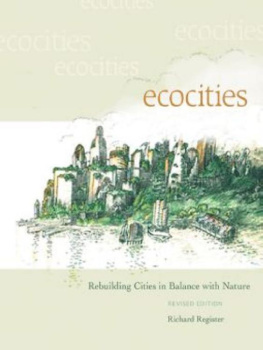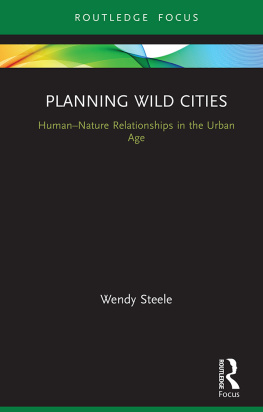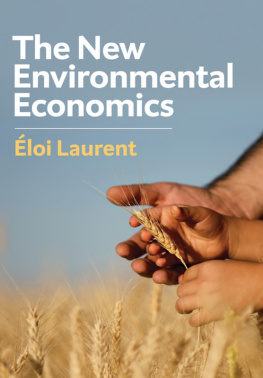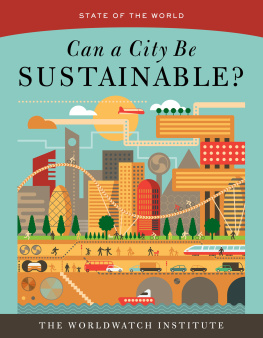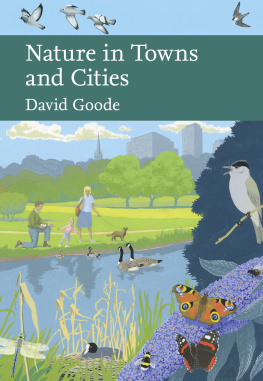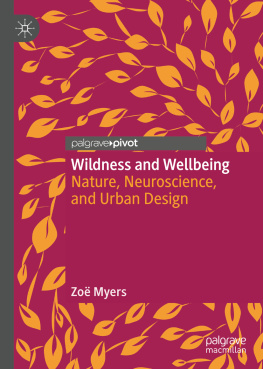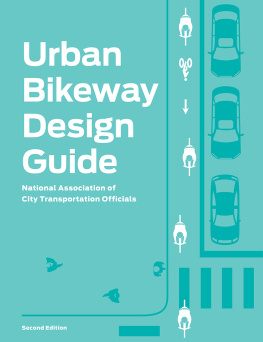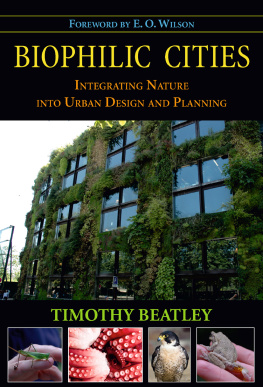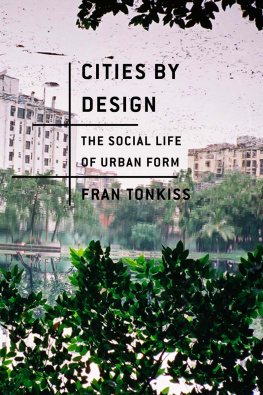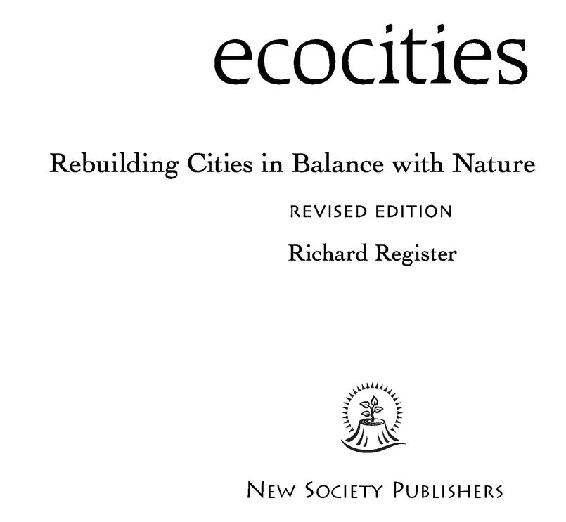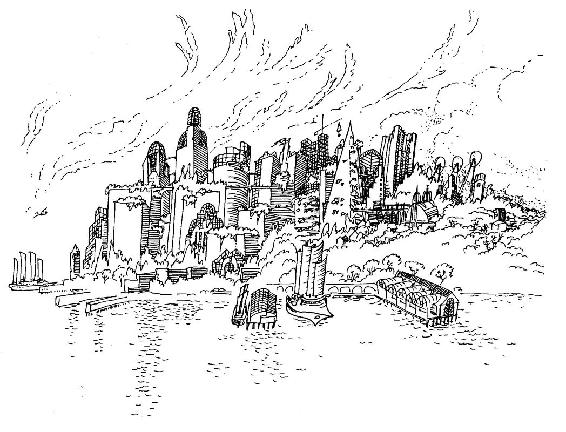Table of Contents
ADVANCE PRAISE FOR Ecocities
While most green city books are at best sustainability-light, Richard Registers Ecocities: Rebuilding Cities in Balance with Nature steers a course to deep green. His hard-hitting solutions are on a scale commensurate with the problem. Read it and work quickly to implement his many suggestions if you want a tolerable planet upon which to house your home.
RANDY HAYES, Executive Director, International Forum on Globalization & Founder of Rainforest Action Network
Ecocities takes you on an exploratory journey into the cities of the future. You will wander along streets flanked by clear streams and flowering shrubs where there is no polluting traffic, or traverse bridges linking gardens and fruit trees many stories above the ground. Yet this is no half-baked dream, but rather a reality based on technologies, architectural designs and functioning buildings that actually exist in several places around the globe, and concepts that have been approved by down-to-earth city planners. I want everyone, especially high school and college students, to read and think about Richard Registers book. A copy of Ecocities should be in every school library.
DR. JANE GOODALL, DBE, Founder, the Jane Goodall Institute & UN Messenger of Peace www.janegoodall.org
That we are entering a new world, one of rising temperatures and the coming of peak oil production is no longer debatable. What most people miss is that the largest things human beings create the built community of cities, towns and villages is the cause of and potential solution to these largest of all problems facing humanity and future life on Earth.
Ecocities places us all right there, well prepared with a vision, enthusiasm, and powerful, practical tools. This book enables us to challenge the doom-sayers and doom-makers to this race for a healthy, sane, compassionate future. We have to win, and, explains the author, heres how.
LESTER R. BROWN, President of the Earth Policy Institute and author of Plan B 2.0: Rescuing a Planet Under Stress and a Civilization in Trouble.
There are few people who know and understand cities in the way Richard Register does and even fewer who are prepared to stand up and be counted as genuine friends of the city. Richard Register is one of those rare authors who can speak and write about cities from both the head and the heart, who combines solid technical knowledge and skills with a vision of the beauty and ecological possibilities of the city.
In this book Richard Register provides a wonderful account of how we can transform cities into places that are not only sustainable, but which are a joy and inspiration to live in. This book needs to be read not only for its intellectual contribution to future city development, but also for how it speaks to the heart about the true meaning of the city.
JEFFREY KENWORTHY, Professor in Sustainable Cities, Institute for Sustainabilty and Technology Policy, Murdoch University, Perth, Western Australia
As an environmental activist I have long admired Richard Register and Ecocity Builders. Its so clear that with politicians and the private sector focused on bottom lines dictated by inter-election intervals or quarterly dividends, long-term ecological issues tend to lie out of sight.
By taking the perspective of decades and working for incremental change in the right direction, enormous changes can happen in the end. Richard gave me a powerful insight when he showed the rate of renewal within cities and how inculcating ecological principles could be integrated and have a huge effect over time.
DAVID SUZUKI, The David Suzuki Foundation
To Nancy, Bill, Sylvia and Kirstin for years of sustained friendship and help, in the spirit and substance that made this book possible
Ecocites Become Us
Its a secret now, but cant be for long.
We are of three bodies:
One created for us, given at birth,
One created by us, labored through life,
One created with us, eternitys rebirth.
One the individual, of flesh, blood and soul,
One the community of wood, stone and fire,
One the universe, of stuff, time and changing.
This is who we are, where we are from, are, and going.
The secret is out. We are building ourselves.
We are the universe, painful joyous work unfolding.
ACKNOWLEDGMENTS
WITHOUT THE FINANCIAL AND MATERIAL assistance of the following people this book, either would not have been completed or would have taken much longer: Charlotte Rieger, Ron Chilcote and the Foundation for Sustainability and Innovation, Marci Riseman, Walt Christiansen, Ross Jackson, Hamish Stewart and Gaia Trust, Jerry Mander, Doug Thompson, Ralph Kratz, the Foundation for Deep Ecology, Patrick Kennedy, Pat and Graeme Welch, Diana and Arjun Divecha, and Marco Vangelisti. For editing thats indispensable and I should think very difficult when an artist/activist like myself dutifully tries to write a book, something thats not necessarily natural to his inclinations and skills thanks to Barbara Metzer for a big ever so thorough job and, in the second edition, to Ingrid Witvoet at New Society, and to my editor Michael, and to Kirstin Miller for many good suggestions and reflections. For the moral support, encouragement, and clear reflection over the years on ideas and issues that make up so much of this book, I have to give considerable credit to Nancy Lieblich, Bill Mastin, Susan Felter, Sylvia McLaughlin, and Huey Johnson. For particularly important help with Ecocity Builders, Urban Ecology, and Arcology Circle local projects and international conferences that provided grist for this books mill, my great appreciation to Rus Adams, Ray Bruman, Jim Caid, Paul Downton, Chrie Hoyle, Joan Bokaer, Rusong Wang, Will Wright, and Joell Jones. My ecocity debate team members were mainly Ken Schneider, Thomas Berry, Brian Swimme, E.F. Schumacher, Hazel Henderson, Jerry Brown, Ernest Callenbach, Walt Anderson, Lynne Elizabeth, Joseph Epes Brown, and, providing crucial ideas and inspiration at a more remote distance, Jane Jacobs, Ian McHarg, E.O. Wilson, and for the ecocity is the city to make peace on Earth and with Earth Mahatma Gandhi. Special thanks to Paolo Soleri for his pivotal insights, his willingness to share them with me, and his courage to build.
And finally, the key link in getting any book out from the struggling writers brain to the world at large: thanks so much to the publisher of the first edition, John Strohmeier, and his fine company, Berkeley Hills Books, and to Chris and Judith Plant and the other folks at New Society, one of those rare publishers with a powerful vision, whose books lead to a better world in action as well as contemplation.
FOREWORD
By Hazel Henderson
AS RICHARD REGISTER SAYS, the quality of life depends largely on how we build our cities. The higher the density and diversity of a city, the less dependent it is on motorized transport; and the fewer resources it requires, the less impact it has on nature.
This book is a treasure trove of such insights summarizing the role of cities in human evolution. Register reminds us that our cities are living systems that we shape and which then shape us, our lives, and even our evolutionary possibilities. As someone who has pondered the role of cities, as an environmentalist and a futurist, I must say that

